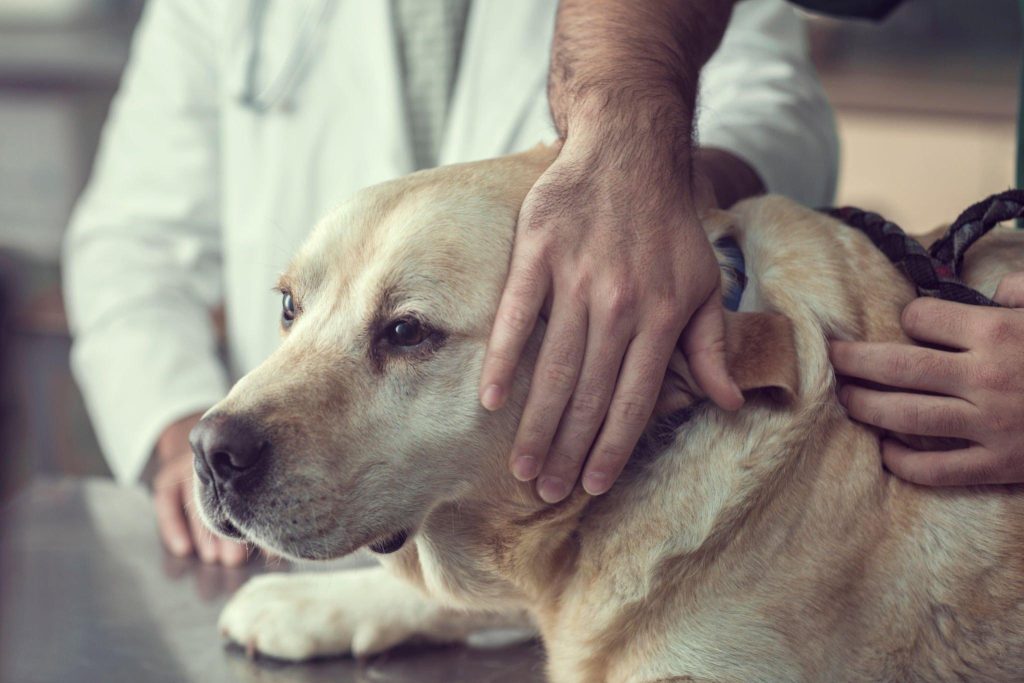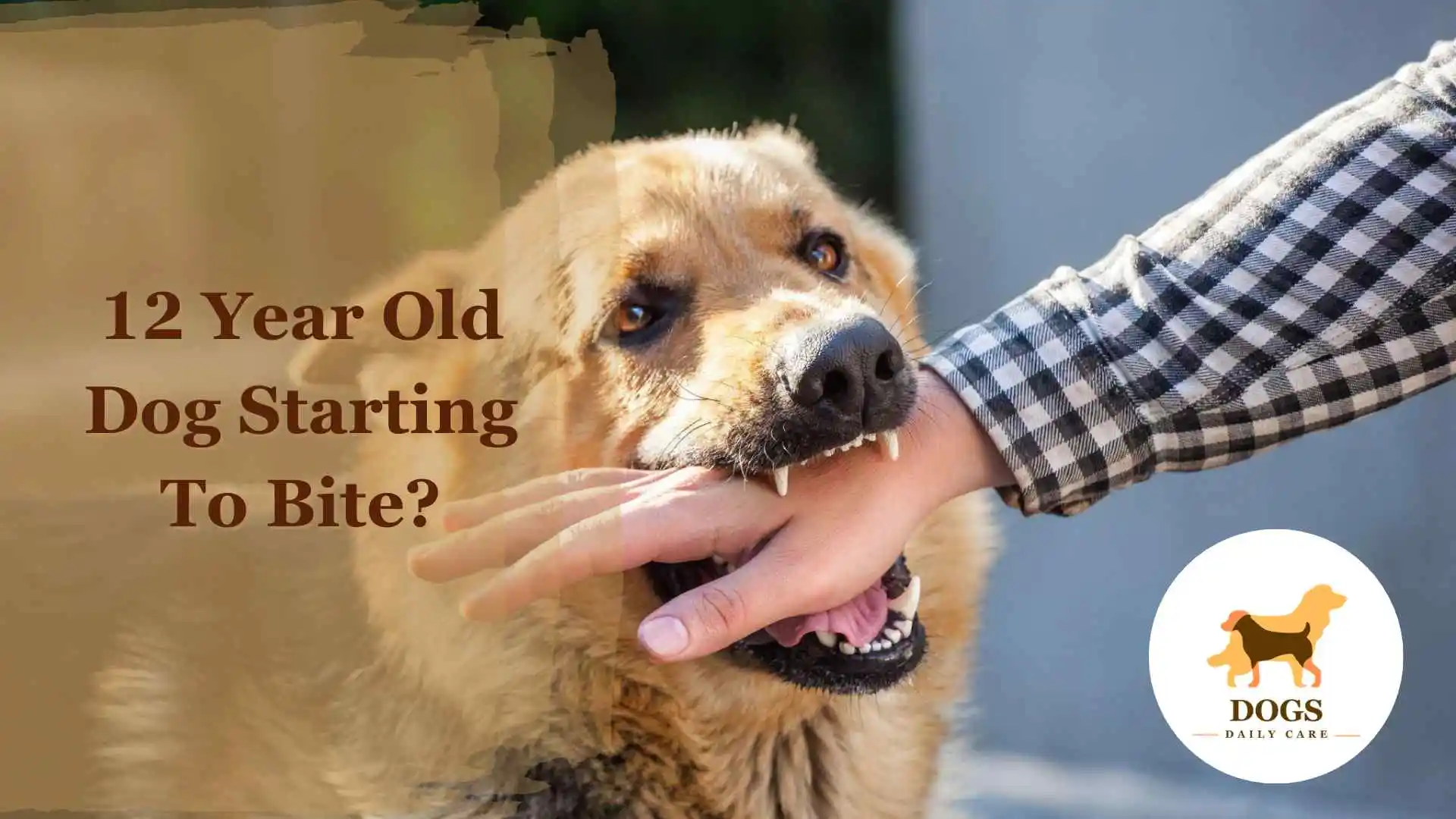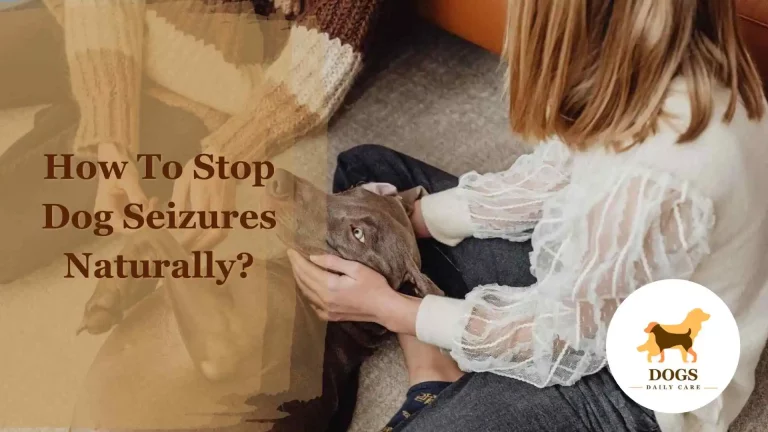Has Your 12 Year Old Dog Starting to Bite? – Here’s What To Do
As our beloved dogs age, their personalities and behaviors can evolve in unexpected ways. Recently, my journey with my 12-year-old canine companion took a turn when he unexpectedly started showing signs of aggression, including biting.
This change can be startling and concerning for any pet owner, and it’s a reminder of the complexities involved in caring for senior dogs. Understanding why these changes occur and how to handle them is crucial, not just for our peace of mind but also for the well-being of our furry friends.
Realizing that this issue could be more common than we think, I felt compelled to share our story and delve into the reasons behind such behavioral changes in older dogs. It’s important to approach this with patience and compassion, remembering that this is as new for them as it is for us.
This blog aims to shed light on the causes, signs, and solutions for managing aggression in senior dogs, guiding you through a journey of empathy and understanding.
Understanding Age-Related Changes in Dogs
As dogs enter their senior years, they experience changes just like humans do. These changes can affect their physical health, mental sharpness, and behavior. It’s common for older dogs to slow down and have less energy. But sometimes, these changes go beyond just needing more naps.
Physical health issues like arthritis can make them feel pain, leading to irritability or aggression. Loss of hearing or vision can also play a role. Imagine the confusion and fear they might feel if they can’t see or hear as clearly as before. This can make them more prone to snapping or biting out of fear or surprise.
Mental health is equally important. Dogs can experience cognitive decline, similar to dementia in humans. This can lead to disorientation and changes in behavior. They might forget familiar faces or routines, leading to stress and anxiety. Understanding these aspects is key to empathizing with our aging canine friends.
By recognizing these age-related changes, we can better support our senior dogs. Simple adjustments in our homes and routines can make a big difference in their comfort and behavior. Remember, aging is a natural process, and our pets rely on us for understanding and care in their golden years.
Identifying the Causes of Biting in Senior Dogs
When a senior dog starts biting, it’s a sign that something’s not right. It’s not just a behavioral issue but often a cry for help. Identifying the root cause is crucial to help them. Let’s explore some common reasons behind this change.
First, consider health issues. Pain is a major factor. Conditions like arthritis, dental problems, or internal discomfort can make a dog lash out. If your once gentle buddy suddenly snaps or bites, they might be in pain. It’s like how we get grumpy when we’re not feeling well.
Next, look at sensory decline. As dogs age, they might lose their sight or hearing. This can be scary for them. Imagine not seeing or hearing well and being startled by a touch or a sudden approach. This fear can lead to defensive biting.
Lastly, think about their mental state. Older dogs can suffer from cognitive dysfunction syndrome, similar to dementia in humans. This can cause confusion, anxiety, and changes in behavior. Your dog might not recognize familiar people or settings, leading to fear-based aggression.
Remember, these changes are as hard for them as they are for us. A visit to the vet can help pinpoint the cause. Understanding why your senior dog is biting is the first step in helping them feel safe and loved in their golden years.
Behavioral Signs to Watch For in Senior Dogs
Knowing what signs to look out for can help you understand your senior dog’s needs better. It’s like being a detective, but for your dog’s behavior. Let’s break down some key signs that indicate your dog might be struggling.
First, notice any changes in their daily routine. Is your dog sleeping more or less than usual? Are they eating differently? Changes in basic activities can be a clue that something’s off. It’s like when we feel unwell and skip meals or stay in bed.
Watch for signs of discomfort or pain. Limping, difficulty getting up, or reluctance to play can mean they’re in pain. They might also lick or bite a specific area of their body. It’s their way of telling us something hurts.
Pay attention to their interactions with people and other pets. Are they avoiding contact or growling more? Maybe they’re hiding or seem more clingy than usual. These behavior changes, especially in a previously friendly dog, can signal distress or confusion.
Remember, these signs are not your dog being difficult. They’re important cues that your senior dog needs some extra care and understanding. Spotting these signs early can make a big difference in managing their health and well-being.
Management and Prevention Strategies for Biting in Senior Dogs
Dealing with a biting senior dog can be challenging, but with the right strategies, you can manage and even prevent this behavior. Let’s explore some effective ways to help your furry friend.
Start with their environment. Create a safe and comfortable space for your dog. Think about soft bedding, easy access to food and water, and a quiet spot away from too much noise or activity. It’s like setting up a cozy room for a dear friend.
Training is key, even for older dogs. Gentle, positive reinforcement techniques work best. Reward good behavior with treats or praise. Avoid punishment or harsh methods, as they can increase fear and anxiety. Remember, patience is your best tool here.
Routine helps too. Dogs, especially seniors, thrive on routine. Regular feeding times, walks, and rest periods provide a sense of security. It’s like how we feel calmer with a structured day.
Lastly, consider professional help. A vet or a dog behaviorist can offer personalized advice and treatment options. They’re like the doggy experts who can give insights into what your dog is going through.
By using these strategies, you’re not just managing biting. You’re enhancing the quality of life for your senior dog, ensuring their golden years are as happy and comfortable as possible.
Seeking Professional Help for Senior Dogs
Sometimes, the best way to help your senior dog is to turn to the pros. When your dog’s behavior changes, especially with biting, getting professional help can make a big difference. Let’s talk about why and how to seek expert advice.

Firstly, a veterinarian is your go-to person. They can check for health issues that might be causing pain or discomfort, leading to biting. Think of them as a detective for your dog’s health. They can do tests, give medications, or suggest treatments. Regular vet check-ups are crucial, especially as your dog ages.
Then, there are dog behaviorists or trainers. These experts understand dog behavior deeply. They can work with your dog to manage aggression or fear. They’re like teachers who specialize in helping dogs learn and feel better.
Remember, asking for help is a sign of strength, not weakness. It shows you’re committed to caring for your senior dog. Plus, these experts can also support you, offering advice and peace of mind. Together, you can work towards making your dog’s golden years comfortable and happy.
Frequently Asked Questions (FAQs) About Senior Dogs and Biting
1. Why has my senior dog suddenly started biting?
Sudden biting in senior dogs can be due to various reasons like pain, fear, sensory loss, or cognitive changes. It’s often a response to discomfort or confusion they can’t otherwise communicate.
2. Can old dogs be trained not to bite?
Yes, senior dogs can still learn and adapt. Gentle, positive reinforcement training can be effective. However, it’s also important to address any underlying health issues that might be contributing to the behavior.
3. How can I tell if my senior dog’s biting is due to pain?
Look for signs like limping, reluctance to move, whimpering, or licking a particular area excessively. These can indicate pain. A vet check-up is the best way to confirm and address pain-related issues.
4. Are certain breeds of senior dogs more likely to bite?
While some breeds may have a predisposition for certain behaviors, biting in senior dogs is more often linked to health or sensory issues rather than breed.
5. What should I do immediately if my senior dog bites someone?
Ensure the person bitten receives appropriate care. Then, isolate your dog in a safe place to prevent further incidents. Consult with a veterinarian or a professional behaviorist to understand and address the cause of the biting.
Conclusion
In wrapping up, it’s important to remember that biting in senior dogs is often a sign of underlying issues rather than intentional aggression. As our loyal companions age, they require our understanding and patience more than ever. Addressing the root causes of biting, whether they stem from physical pain, sensory decline, or cognitive changes, is key to ensuring their comfort and safety.
By staying attentive to their needs, seeking professional help when necessary, and employing gentle training techniques, we can significantly improve the quality of their golden years.
Embracing this phase of your dog’s life with empathy and care not only strengthens the bond between you but also provides a fulfilling experience for both. Remember, the journey with our senior pets can be as rewarding as it is challenging. Let’s make their twilight years as peaceful and loving as the many they’ve spent by our side.







